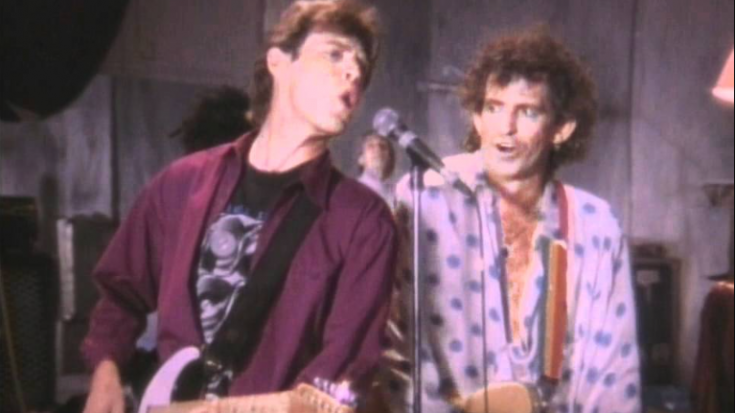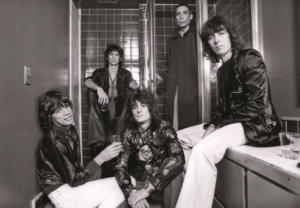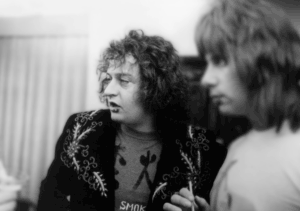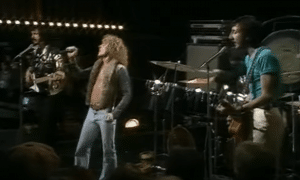1960s Unreleased Songs That Could’ve Been Great

via The Rolling Stones / YouTube
Ever consider the songs that were never played on the radio? The ones that stayed hidden away in studio vaults or disappeared into the maze of the 1960s music scene? These are the songs that can change how we think about rock and roll. Unreleased songs from renowned bands like The Beatles and Cream could have changed the trajectory of music history. Let’s take a closer look at these hidden gems and speculate about what might have been if they had been found.
10. Cream’s Falstaff Beer Commercial
Imagine this: Cream, one of rock’s most influential bands, recording a jingle for a beer commercial in the mid-60s. The track was bluesy, catchy, and had all the elements of a hit. But why did it never air? Cream’s manager wanted to capitalize on the band’s success by blending rock with commercials, but Eric Clapton wasn’t comfortable with the idea. After recording, the band decided not to approve the ad, and the song was shelved. What could have been if it had aired? It might have sparked a trend in rock and corporate collaborations.
9. Bob Dylan’s “She’s Your Lover Now”
A little-known song from the 1966 Blonde on Blonde recording sessions is “She’s Your Lover Now” by Bob Dylan. This unvarnished, tragic poem, which is replete with themes of love, treachery, and regret, exemplifies Dylan’s literary genius. The song was never included on the final album, even though it had the potential to become one of his most famous songs. The song was abandoned after multiple tries as Dylan’s band struggled to express his strong vision. Some claim it was just ahead of its time, while others feel it was overly sentimental. Consider how his career would have changed if he had been released.
8. Led Zeppelin’s “Sugar Mama”
Led Zeppelin’s “Sugar Mama” was a powerful bluesy track recorded in 1968 during their early sessions. With Jimmy Page’s killer guitar riffs and Robert Plant’s soaring vocals, it had all the energy of a rock anthem. But despite its raw potential, the song never saw the light of day. Zeppelin was evolving, shifting from blues covers to forging a heavier, more original hard rock sound. Producer Peter Grant felt “Sugar Mama” didn’t fit their new direction, so it was shelved. Imagine how different their debut album could have been if it had made the cut.
7. The Doors’ “Paris Blues”
The Doors’ “Paris Blues” is a mysterious and haunting track that might have revealed a whole different side of Jim Morrison. Recorded during the band’s final sessions before he left for Paris, the song became legendary due to its connection with his last days. Sadly, the only known copy of the track was damaged, and it was never released. Imagine how this song might have changed the story of Morrison’s legacy if it had been shared with the world. It could have given fans a glimpse into his deeper emotions and struggles.
6. Pink Floyd’s “Scream Thy Last Scream”
“Scream Thy Last Scream” by Pink Floyd is a crazy, hallucinogenic experience that captures the turmoil of Sid Barrett’s thoughts. This 1967 recording, which was far ahead of its time, features distorted sounds, oddball vocals, and an unstructured mood. However, the band chose not to release it because of Barrett’s deteriorating health and the unpredictability of the recording process. Would it have cemented Barrett’s status as a musical genius or would it have pushed Pink Floyd even deeper into experimental terrain if it had been on an album? We will never be able to know.
5. The Rolling Stones’ “Blood Red Wine”
The Rolling Stones’ “Blood Red Wine” is a soulful, emotional ballad that never made it to their classic Beggars Banquet album. With Mick Jagger’s mournful vocals and Keith Richards’ haunting guitar, the track captures deep regret and lost love. But it didn’t fit with the Stones’ rebellious rock image at the time, so it was left off the album. Some say Jagger felt it was too personal. Imagine if it had made the cut—could it have revealed a softer, more introspective side of the Stones during a key moment in their career?
4. Jimi Hendrix’s Black Gold Collection
Jimi Hendrix, the ultimate guitar legend, recorded a suite of songs called Black Gold in 1970, just months before his tragic death. This collection, discovered years later, revealed a more personal, introspective side of Hendrix. The songs, blending folk, blues, and jazz, explored themes like his experiences as a Black man, fame, and love. Though it was recorded on a basic tape recorder, the raw emotional depth of Black Gold might have changed how we viewed Hendrix—not just as a rock icon, but as a soulful, reflective songwriter. Sadly, we’ll never know what could’ve been.
3. The Beach Boys’ “Mrs. O’Leary’s Cow (Fire)”
The Beach Boys’ “Mrs. O’ Leary’s Cow” (also known as “Fire”) is one of the band’s most experimental tracks, created during Brian Wilson’s wild phase in 1966. This avant-garde instrumental was meant to evoke the chaos of a great fire with dissonant horns and jarring percussion. But here’s the twist—Wilson believed the track caused actual fires in Los Angeles, spooking him into shelving it. Had it been released, it could have radically changed the band’s image, pushing them into experimental music like The Beatles and Velvet Underground. Instead, it stayed hidden, fueling curiosity ever since.
2. The Who’s “Melancholia”
The Who’s “Melancholia” is a rare glimpse into a darker, more introspective side of the band. Recorded in 1967, this track is a far cry from their usual explosive sound, diving deep into themes of existential dread and despair. It didn’t make the cut for The Who Sell Out, which was filled with playful and quirky songs. Pete Townshend, ever the perfectionist, wasn’t happy with the recording, so the song stayed hidden. Had it been released, it could have shown a whole new emotional side of The Who and changed their musical path.
1. The Beatles’ “Carnival of Light”
The Beatles’ experimental song “Carnival of Light,” which was never released, is at the top of our list. Definitely not your average Beatles song, this 1967 recording from the Sgt. Pepper’s sessions is jam-packed with distorted sounds, sporadic yells, and strange effects. Even for the band, it was too avant-garde, so they decided not to release it. George Harrison and Ringo Starr decided against including it in the Anthology series, although it might have inspired a new generation of experimental music. It was never formally released and is still a mystery in music history.




























